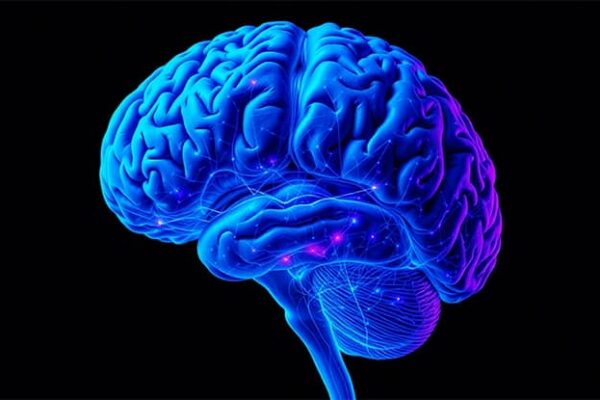Asperger’s syndrome is one of the conditions on the autism spectrum, characterized by particularities in social interaction, communication, and perception of the world. Unlike other forms of autism, it is often accompanied by preserved or even high intelligence, as well as the absence of speech development delays, which makes it difficult to recognize. People with […]
Compulsive overeating – psychological causes and working methods of struggle
Compulsive Overeating is not just occasional episodes of “overindulgence,” but a serious eating disorder in which a person regularly experiences uncontrollable binge-eating episodes accompanied by feelings of shame and helplessness. Unlike situational overeating (for example, at a holiday table), compulsive overeating occurs independently of actual hunger and most often serves as a way to suppress stress, […]
Psychasthenia: The Disease of Perfectionists and Anxious Geniuses
Psychasthenia is a specific neurotic disorder in which a person becomes trapped in their own thinking: they are plagued by obsessive doubts, chronic anxiety, and exhausting perfectionism. Unlike ordinary anxiety, which comes and goes, psychasthenia creates a constant background of inner tension, where every decision is made with difficulty, and every mistake is experienced as […]
Psychogenic Aphonia as a Defense Mechanism: Why the Psyche Blocks Speech
The human voice is not just a tool for communication but a reflection of one’s inner world, emotions, and even unconscious processes. But what happens when this voice suddenly disappears? In medicine, this condition is known as aphonia — the loss of a sonorous voice while retaining the ability to speak in a whisper. In most […]
Neuroimaging: Key to Understanding Mental Disorders
In the modern world, mental disorders are becoming one of the most pressing public health issues. According to the World Health Organization (WHO), one in four people worldwide will experience some form of mental illness in their lifetime, such as depression, anxiety disorders, schizophrenia, or bipolar disorder.
Conversion Disorder: How Emotions Turn into Physical Symptoms
Conversion disorder is a complex mental condition in which emotional experiences, stress, or internal conflicts manifest through physical symptoms that have no apparent medical cause. This disorder falls under the category of dissociative disorders, where the psyche “converts” unexpressed emotions into bodily manifestations, such as loss of sensation, paralysis, seizures, blindness, deafness, or even speech […]
Hysteria: A Historical Look at the Most Mysterious Disorder
Hysteria is one of the most mysterious and controversial phenomena in the history of medicine and psychology. For centuries, the term hysteria has been used to describe a wide range of symptoms, from physical manifestations such as paralysis and convulsions to emotional outbursts, including anxiety, fear, and uncontrollable crying.
Seasonal Affective Disorder: Main Symptoms and Treatment Methods
Seasonal Affective Disorder (SAD) is a form of depression that occurs during specific times of the year, most often in the fall and winter, when daylight hours decrease and sunlight becomes scarce. This condition is accompanied by feelings of sadness, fatigue, a loss of interest in usual activities, and other unpleasant symptoms that can significantly […]
Anankastic personality disorder: causes, symptoms, therapy
Anankastic personality disorder is a complex psychological condition characterized by an excessive inclination toward order, control, and perfectionism. People with this disorder feel a constant need for structure and precision, which often interferes with their daily lives.
Abulia: First Signs and Self-Help Methods
Abulia – is a psychological condition characterized by a significant decrease in willpower and the ability to engage in purposeful activities. A person experiencing abulia may feel inner emptiness, apathy, and an inability to make even simple decisions. Unlike ordinary laziness, which is temporary and depends on external circumstances, abulia is a prolonged condition that […]
Anorexia as a Mirror of Internal Conflicts
Anorexia is a complex eating disorder characterized by an obsessive drive to lose weight, achieved through strict food restrictions. Contrary to popular belief, this condition is not always solely a result of the desire to look thinner. Often, it stems from deeper issues related to a person’s emotional state and inner world.
Bulimia Nervosa through the Eyes of a Psychologist: What is Hidden Behind Overeating
Bulimia, or Bulimia Nervosa, is an eating disorder characterized by recurrent episodes of uncontrollable overeating, followed by compensatory behaviors such as self-induced vomiting, the use of laxatives, or excessive physical activity. A key feature of this condition is a deep internal conflict and an inability to stop destructive behavior despite awareness of its harm.
Causes, Symptoms and Treatment of Social Anxiety Disorder
Social Anxiety Disorder (SAD), also known as social phobia, is a psychological condition characterized by an intense fear of social situations. People suffering from this disorder experience anxiety, shame, and tension in interactions with others, especially when it comes to public speaking, meeting new people, or even simple daily interactions such as talking to a […]
Self-harm as a Cry for Help: What is Behind this Behavior?
Self-harm is a complex phenomenon that is becoming increasingly relevant in modern society. While not a new issue, the sharp rise in cases among youth and adults raises serious concerns. In a world where mental health is becoming a widely discussed topic, self-injurious behavior serves as a critical indicator that individuals do not always have […]
Aerophobia: How to Overcome the Fear of Flying and Enjoy Traveling
Aerophobia is an irrational fear of flying that can manifest even before a person boards an airplane. It is not just mild pre-travel anxiety but a serious psychological barrier often accompanied by physical and emotional symptoms. Aerophobia falls under specific phobias that can complicate daily life, limiting an individual’s ability to travel or even work […]














